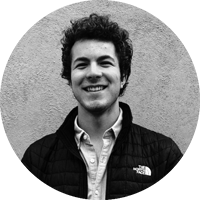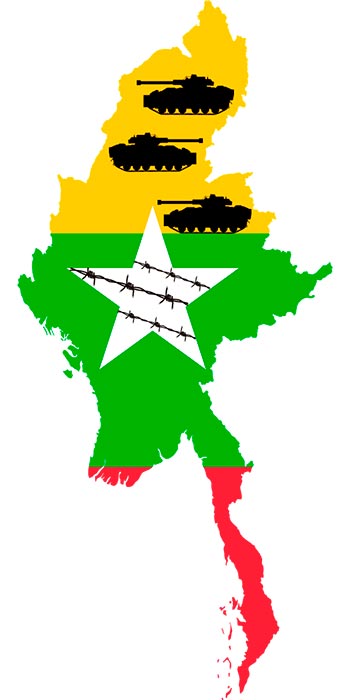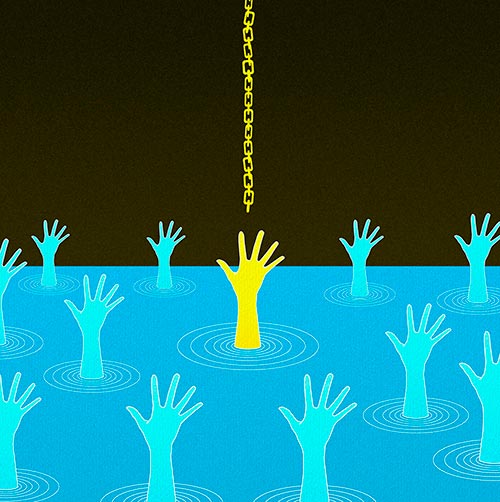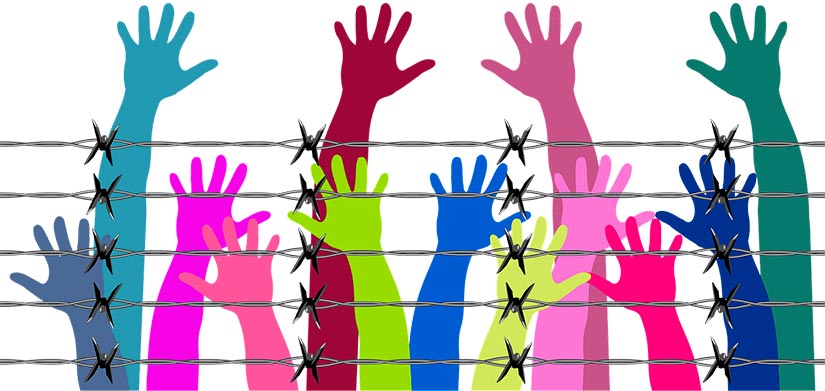Give your opinion
Democracy as a mask

Jorge Léautaud, student of the Degree at Philosophy, Politics and Economics (PPE), of the
School from Philosophy and Lettersbrings us a sharp analysis of the latest developments in Myanmar and their relation to the crisis of the democratic system.
events in Myanmar and their relation to the crisis of the democratic system in the world.
in the world

Min Aung Hlaing, the general at the head of the military board that seized power from the Myanmar government earlier this month, promised in a message to the nation on Monday 8 February to push for "genuine and disciplined democracy". What does this mean? What does this mean, that the elections held in November were undemocratic, and what do these words by the general imply for a fledgling and precarious democracy that has been ten years in the making and now appears to be going backwards? Moreover, how does this particular phenomenon relate to other failed democracies, hybrid systems or authoritarian regimes around the world?
Myanmar, or Burma, has been in a state of political turmoil for 22 days that has neither head nor tail; but it has been chasing the spectre of a democracy for much longer, while it suffers the hindrances of a dictatorship that does not recognise itself as such in the eyes of the public. First on Monday the de facto leader Aung San Suu Kyi and several members of her party, the National League for Democracy, were arrested. The military's board declared a year-long state of emergency and has blocked access to the internet from mobile phones and the use of social networking sites irregularly.
Amidst curfews and demonstrations that have escalated violently - leading to civilian deaths - Martial Law has also been imposed, limiting citizens' gatherings to no more than five people in ten areas of the country, and Aung San Suu Kyi has been charged with two seemingly plausible charges, carrying a combined sentence of up to six years in prison.
Against this backdrop, it is difficult to understand how the general plans to push for "authentic and disciplined democracy". Although it has been regarded as such for a precarious decade - since 2011 - it is well known inside and outside the country that the military has always controlled the affairs of the government. It is in as much that when the military body sees its power threatened by a significant loss of seats, result from the last elections, it resorts to claiming electoral fraud, proclaiming a state of emergency and forcibly taking over the government.
Democracy in decline: a global phenomenon
Unfortunately, this subject situation is not unique to Myanmar. According to The Economist's 2020 Democracy Index, the country ranks issue 135 out of 167 in terms of progress towards democracy. This means that there will be at least, if we leave aside the front runners, 32 other countries behind Myanmar. Why is it that authoritarian regimes manage to consolidate themselves by claiming to be disqualified democracies - those that do - and what do they really lack to become so?

It occurs to me, elementarily and briefly, that these countries fail in their attempts to achieve successful democracy because those interested in achieving it fail to take into account the substantial context under which this form of government arises. By this context I mean the other - originally Western - liberal values that support and sustain the flourishing of a democratic system: the rule of law, respect for individual rights, namely the human and civil rights of its members, freedom of markets and trade, among others... And it is in so far that if the Western context under which liberalism and democracy arose is to be taken into account, then the application of these values to each country that requires them in its own particular case must be considered to the same extent.
Dictatorships in disguise
Let's put it this way: Myanmar does not achieve effective democracy because it is only trying to cover up a much deeper problem with the structure of a form of government - a democracy in disguise. It clearly has no respect for human rights, let alone civilian rights, at least as evidenced by the militia's reactions to the protesters: water cannons and tear gas, brute force in the streets, even firearms.
The military currently in command of the Myanmar government proclaims the desire for "genuine and disciplined democracy", but it proclaims and desires it by transgressing fundamental human rights, by obstructing open trade - the military occupies the most important ministries in the country - by constantly abusing power and political freedom and by ignoring the rule of law when it suits them; in short, they seek a liberal value by ignoring all the others that underpin it.
It is thus that countries such as Sudan - ranked 149th on the Index -, Uzbekistan-155th, Laos-161st, Democratic Republic of Congo-166th, Venezuela-143rd, and Myanmar have to a greater or lesser extent the substance of the democratic form of government - a constitution, legislative bodies, a judicial system, executive leaders, voting and more - but not at all its content: a doctrinally comprehensive understanding of what the core values of liberalism entail.
What can we do? First of all, don't get confused. That is the most important thing. Democracy and respect for human rights are not mutually exclusive. The fact that a country has an executive leader under label as president and a legislative body under congress does not imply that it has a de facto fruitful democratic system.
Now, in order to safeguard democracy, in all its essence of course, we will have to look outwards as well as inwards and see if we ourselves are not in danger. Has the pandemic not made it easier for states to transgress some elementary freedoms? Has it not created a cover for the advance of democracy in various regions of the world? Is the apparently justified order to shoot to kill anyone who breaks quarantine in the Philippines not test of this? These are all questions to ponder, but that is another matter for another article.

If you liked the article, you might be interested in one of our Degrees!








